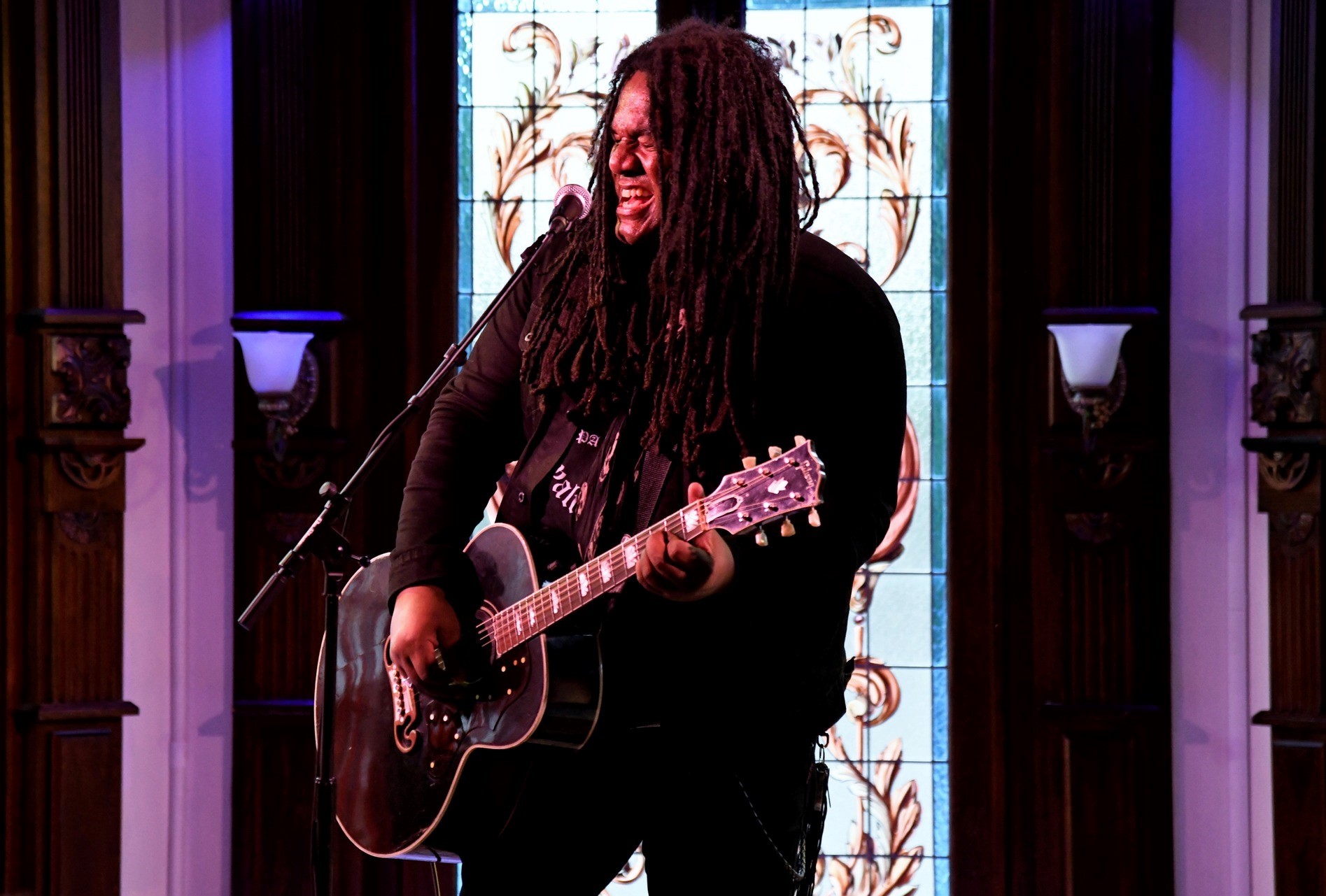
The musician and multi-media artist Will Wood unleashed a dystopian black comedy satire entitled “You Liked This (Okay Computer!)” on Friday, June 10th with the online premiere and exclusive interview hosted by V13.
More of a social commentary piece than a song, this is a piece that the artist was compelled to write and create, fueled by his disdain for social media and his belief that its negative effect on our mental health is due to a concerted effort by the platforms to destabilize and manipulate users. With his signature piano as a dramatic backdrop to the soundscaping and samples in the piece, the “lyrics” are spoken by the voice actress Bev Standing, whose voice was used as TikTok’s iconic text-to-speech voice allegedly without her consent until she sued. Will integrated Bev’s voice into the piece using the iconic whistles and dings that have conditioned us to be instantly checking our phones, glued to the persuasive apps that are taking advantage of our cognitive minds, making us vulnerable to errors in judgment, manipulation and exploitation.
Will Wood explains, “It’s an absolute tragedy that people have been so thoroughly duped by the idea that social media is 'the democratization of media' as opposed to a corporate-owned series of media platforms programmed by hordes of the finest scientific minds on earth with the express purpose of collecting information on you and using it in tandem with highly advanced A.I. systems to feed you a personalized, custom-tailored string of lies curated for the sole purpose of re-wiring your neurochemistry. Even the youth counterculture, the group that should be the most critical of corporate influence on culture, refuses to acknowledge that the ideas they find in their echo chambers were picked out for them by the machines, as were the echo chambers themselves, and that no, you cannot “educate yourself” by blindly following what you see on a social media platform.”
Will Wood speaks about the making of the accompanying video: “'You Liked This (Okay, Computer!)' is an oddball sound project starring Bev Standing, whose voice Tiktok used as their iconic text-to-speech feature allegedly without her consent until she filed suit in 2021. I contacted Bev with my script and she hopped on board, sending me a variety of recordings of her performing it for me to then combine with music and audio I put together. It’s a sort of 21st century Radiohead’s 'Fitter Happier,' but focusing on emotionally manipulative social media A.I.’s and how they predate upon us based on the psychological profiles they create for us using their surveillance. With the help of the ever-talented and courageous Bev Standing, I was basically able to get a recording of TikTok calling itself out; which I find endlessly amusing.”
Bev Standing, the original voice of TikTok
With an incredibly loyal and sometimes fanatic fanbase of 800k monthly listeners on Spotify, Will Wood is releasing several singles and music videos this spring/summer with the final album In Case I Make It dropping at the end of July.












